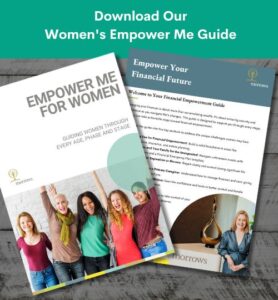Your 20s and 30s are defining decades — building your career, buying property, starting families or businesses, and laying the foundation for long-term wealth. Yet despite the opportunities, many women face unique challenges when it comes to their financial futures.
From the gender pay gap and career breaks to a longer life expectancy, women in Australia must take early, proactive steps to secure financial confidence and independence. Here are the key questions women in their 20s and 30s should ask — and answer — to build a financially empowered life.
“Am I starting my super early enough?”
Time is your greatest asset. The earlier you begin contributing to your superannuation, the more you benefit from compound growth over the decades ahead.
Check your super regularly via MyGov and locate any lost accounts.
Consolidate multiple funds to avoid unnecessary fees.
Ensure your employer is making the correct contributions, and consider adding extra through salary sacrifice to reduce your tax and grow your super.
Make a binding nomination to ensure your super goes to your chosen beneficiary if something happens.
Did you know? Women retire with, on average, 24% less super than men in Australia (source: ATO, 2023).
“Should I be investing more?”
Many women say they wish they’d started investing sooner — and your 20s and 30s are the ideal time to lay the foundations. Establishing good investment and saving habits early gives your money more time to grow and allows you to build financial confidence over time.
At this life stage, your investment strategy can usually be more growth-oriented, as you have time to ride out the ups and downs of the market. Taking a long-term approach — and accepting a higher level of risk — can often lead to better outcomes over time.
Here’s how you can start building confidence and capability:
Talk about money — with friends, family, or a trusted financial adviser. Conversations can lead to clarity and action.
Explore options like managed funds or ETFs, which provide diversification even for newer investors.
Consider setting up automatic investment contributions to build consistency over time.
The earlier you start, the more powerful compounding becomes — and the easier it can be to reach your long-term goals.
“Should I pay off my HECS-HELP debt or buy an investment property?”
This is a common decision point for many women in their 20s and 30s. HECS-HELP loans are interest-free but are indexed to inflation (7.1% in 2023), so while there’s no urgency to pay them off early, rising indexation has sparked renewed interest in clearing the debt.
If your HECS debt is manageable and you’re on track financially, investing in property could be a smart move to start building long-term wealth — particularly if you have a stable income, a deposit, and good cash flow.
That said, if your HECS balance is small or nearly paid off, clearing it could slightly improve your borrowing capacity or simplify your financial picture.
There’s no one-size-fits-all answer — it comes down to your goals and current position. A financial adviser can help you weigh up the trade-offs and plan your next steps.
“What saving habits should I start now?”
Aim to save at least 15% of your salary, if possible. Start with whatever you can and increase contributions as your income grows.
Build an emergency fund with 3–6 months’ worth of expenses.
Use tools like Moneysmart’s Budget Planner to track spending.
: When you receive a pay rise, increase your savings rate — even a little bit helps.
“If I marry or partner up, should we merge our money?”
Every couple is different. While joint finances work for many, it’s important to maintain financial independence too:
Keep a bank account and credit card in your name to build your own credit history.
Maintain a retirement account and super in your own name.
Consider the “Me, You, Us” approach — a combination of joint and individual accounts that reflect both autonomy and shared goals.
“Can I afford to step back from my career — and what happens if I do?”
Whether it’s for parenting or study, taking time out of the workforce is a big decision. Consider:
The impact on your super contributions — can your partner contribute to your super during this time?
The role of income protection insurance, in case illness or injury affects your ability to return to work.
Staying professionally connected through part-time work, consulting, or networking events to support a smoother re-entry later.
“Do I really need insurance in my 20s or 30s?”
Absolutely. Illness or injury doesn’t discriminate by age. Consider:
Income Protection Insurance: Can provide up to 75% of your income if you can’t work due to illness or injury.
Trauma Insurance: Covers serious conditions like cancer, stroke or heart disease.
Life Insurance: Critical if others rely on your income or if you have debts like a mortgage.
Check if you already have cover via your super fund — but also assess whether it’s adequate.
“What legal documents do I need to have in place?”
Life moves quickly. Make sure your legal and financial documents keep up:
- Draft a Will (yes, even if you don’t think you need one).
- Nominate a Power of Attorney and super beneficiaries.
Update all documents after significant life events like marriage, buying a home, or having children.

Need Help Taking the Next Step?
Your journey to financial confidence starts here.
Get your copy of our Women’s Empower Me Guide—crafted by women, for women.
It’s packed with practical advice and tools designed to help women like you lay strong foundations and feel prepared for life’s what-ifs..
Complete your details below, to gain access today!




